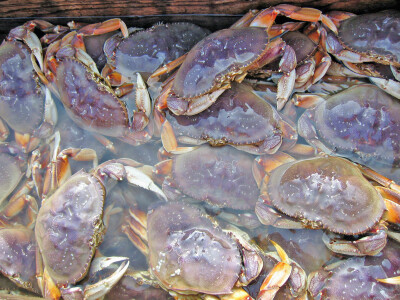NOAA Fisheries Alaska Fisheries Science Center has added a chief of staff to its leadership team. In this role, Dr. Elaina Jorgensen will lead a newly organized strategic support team to more efficiently provide products and services to both center staff and Alaska interested parties.
“We have been undertaking a multi-year effort to strategically respond to climate-driven changes in the environment, improve operating efficiencies, support survey modernization efforts, and mitigate shifting survey needs,” said Dr. Robert Foy, science and research director, Alaska Fisheries Science Center. “Creating this strategic team and realigning information flow puts us in a better position to take on these new challenges. Elaina is the perfect fit to lead this team. She brings to the position a breadth of experience, having worked both as a scientist for the center for 28 years, and served in various management positions.”
Jorgensen has worked as an oceanographer, research fisheries biologist, planning officer, and most recently, Marine Mammal Lab Deputy Director. Jorgensen often engaged with members of the fishing industry, coastal community members, scientists, marine educators and Congressional staff to help convey the NOAA Fisheries science mission. She earned a Masters in Fisheries and a Ph.D. in Oceanography from the University of Washington. She has numerous research publications to her credit, including the Field Guide to Squids and Octopods of the Eastern North Pacific and Bering Sea.
Specifically in her new position, Jorgensen will oversee the Strategic Support Team. This team will:
- Lead responses to external requests for information
- Implement science center strategic initiatives
- Coordinate the planning required to ensure that the center is successful in the mission laid out in our Strategic Science Plan
“Throughout her career, Elaina has proven herself as a capable scientist, talented communicator, and critical thinker. She is well suited to assist me and the rest of the leadership team in successfully implementing strategic initiatives and tackling new challenges so we can continue to provide resource managers and interested parties with the best available science to support and understand our marine resources,” said Foy.







